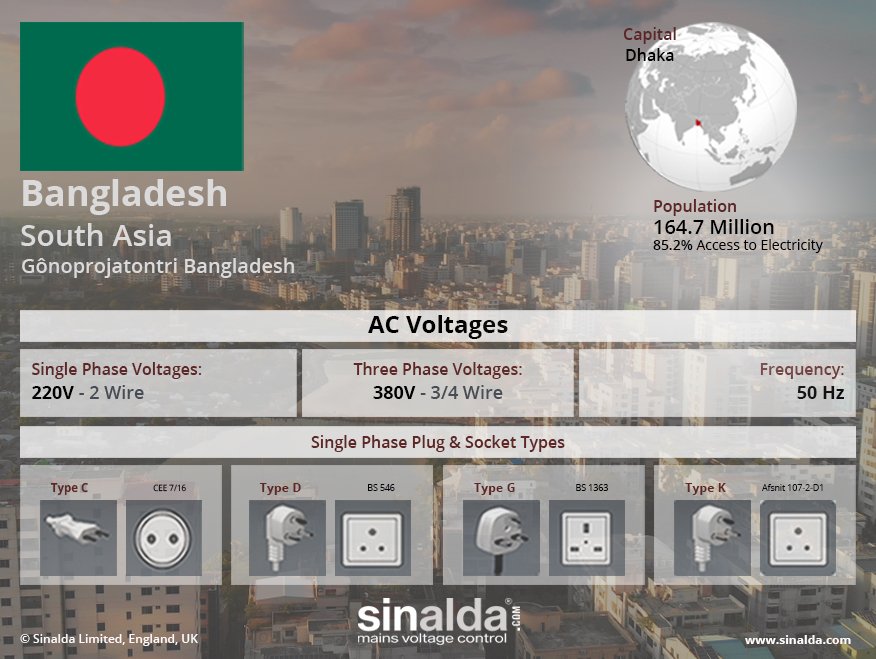Last Updated: 01 November 2021

Copyright 2021 Sinalda. Permission to use this image is granted subject to appropriate credit being given to www.sinalda.com as the source.
Power Quality in Bangladesh
Bangladesh is a densely populated country located in South Asia with a population of approximately 165 million people. Providing reliable and affordable electricity to its citizens is crucial for the country’s economic development and social well-being. Bangladesh has made significant progress in expanding access to electricity in recent years, but the reliability of its electricity supply network still poses a challenge. Power Outages and voltage fluctuations are frequent occurrences.
Power Sector in Bangladesh
The power sector in Bangladesh is managed by the Bangladesh Power Development Board (BPDB), which is responsible for generating, transmitting, and distributing electricity. Most of Bangladesh’s electricity is generated from natural gas, with a smaller proportion generated from coal and renewable energy sources such as hydropower and solar.
Despite progress in expanding access to electricity, Bangladesh still faces challenges in ensuring the reliability of its electricity supply network. The country experiences frequent power outages, particularly during periods of high demand, which can last for several hours at a time. These outages can significantly impact the country’s economy and its citizens’ daily lives.
One of the main reasons for the unreliable electricity supply in Bangladesh is the inadequate capacity of the power generation and transmission infrastructure. The country’s power generation capacity has struggled to keep up with increasing demand, leading to frequent load shedding and power outages. The country’s transmission and distribution infrastructure is also outdated and prone to technical faults.
The government of Bangladesh has recognized the importance of addressing these challenges and has implemented policies and programs to improve the reliability of the electricity supply network. One of the main initiatives is the “Power System Master Plan,” which outlines a roadmap for the country’s electricity sector development. The plan includes expanding the country’s power generation capacity, upgrading the transmission and distribution infrastructure, and promoting renewable energy sources.
Another significant step taken by the government is the introduction of public-private partnerships (PPPs) to encourage private investment in the power sector. This has resulted in several new power generation projects being undertaken by private companies, which will help to increase the country’s power generation capacity and improve the reliability of the electricity supply network.
Despite these efforts, challenges remain in ensuring the reliability of Bangladesh’s electricity supply network. The country’s dependence on natural gas as a primary fuel source leaves it vulnerable to fluctuations in gas prices and supply shortages. Additionally, the high cost of electricity production and distribution limits the affordability of electricity for many citizens.
Conclusion
In conclusion, the state of the electricity supply network in Bangladesh is improving, but more work is needed to ensure its reliability. The government’s initiatives to expand the power generation capacity, upgrade the transmission and distribution infrastructure, and promote renewable energy sources are steps in the right direction. However, continued investment in the electricity sector is necessary to provide reliable and affordable electricity to all citizens of Bangladesh.
Share your Views and Experiences
Every reasonable effort is made to ensure that the information provided above is accurate. No guarantees for the accuracy of the information is made.
So we are able to keep the content updated, and actual on the ground experiences can be shared with others, please feel free to contact us.







